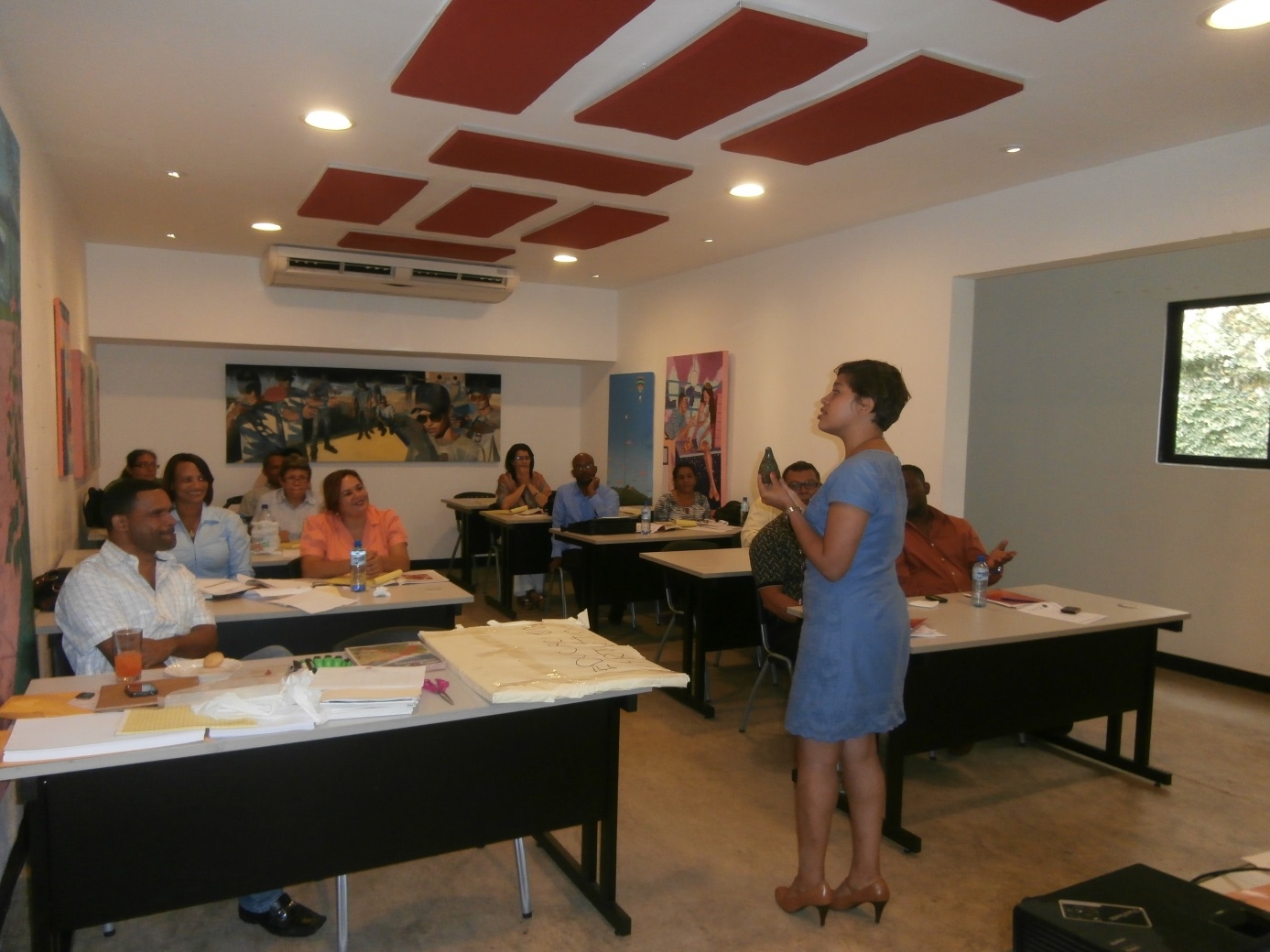Research project
Educational practices in promoting awareness of the indigenous heritage in Caribbean countries
The main research question of this PhD project focus on how educational policies and practices can contribute to the promotion and understanding of archaeological indigenous heritage among teachers and students in the Caribbean?

Short abstract
The research is conducted by Eldris Con Aguilar using a pedagogical perspective on the educational practices concerning indigenous heritage in the Caribbean.
Social Relevance
The starting point for this research is how Indigenous heritage is currently taught in the (secondary) school curriculum in Caribbean countries
The research is conducted in St. Kitts-Nevis and the Dominican Republic. Practical activities and workshops are organized with the collaborative participation of the school community and local stakeholders.
Scientific Relevance
This research expects to provide new contributions to recent endeavors in archaeology and education through the combined use of the ethnographic and educational research approaches. Furthermore, the practical component of this research seeks to enquire more about the role of in-service teacher training in creating connections with cultural stakeholders and thereby obtaining more sustainable practices in indigenous heritage and education.

Why Leiden University
This research is conducted at the Faculty of Archaeology of Leiden University which offers the opportunity to work in conjunction with (experienced) specialists in Caribbean Archaeology and Archaeological Heritage Management.
Leiden University also offers an international and multidisciplinary environment that serves as an excellent basis to seek further opportunities for collaboration in other Faculties and Institutes with an interest in educational research.
Theory and Methods
This research focuses on two main premises: 1) the constructivist educational theory as applied to the study of archaeology and education and its impacts in both formal and informal settings.
2) the Pedagogical Content Knowledge approach to study the way teachers deal with indigenous heritage as a subject matter in their classes, and how the collaboration between teachers, archaeologists, and specialists in heritage and museums can contribute to enhance research in archaeology and education.
This research is conducted within a qualitative research framework. Ethnographic research (interviews, surveys, participation in activities) and case studies complete the methods used as basis for this research.
Follow-up
In the end, this research will provide thorough insight into the present status of research in archaeology and education in the Caribbean region and the role which interactions between school communities, museums and cultural institutions play in preserving the archaeological indigenous heritage for future generations.
It will also provide challenging new educational activities that can be incorporated into the school curriculum and local communities to help promote Caribbean indigenous heritage.
